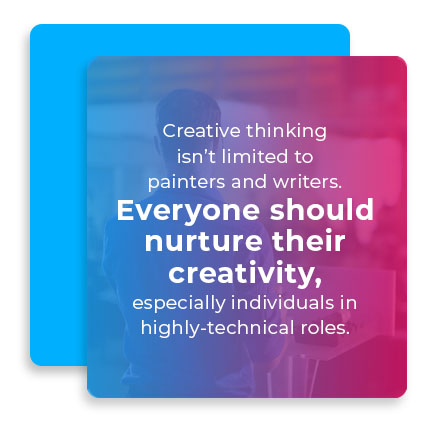Transferable skills are abilities applicable across various jobs and industries. Examples include communication, problem-solving, teamwork, adaptability, and time management. These skills help individuals transition between roles and contribute effectively in diverse professional settings.
We can’t predict the future, but we can predict that you’ll make several job changes throughout your career. How do we know? ’Cuz that’s just the reality of today’s job market. More people than ever are job-hopping in the hopes of scoring a good-paying job and finding a better cultural fit.
So, are you prepared to switch jobs or perhaps even careers? Even if you aren’t considering a change right now, it’s important to plan for one in case your situation changes. But how do you plan for a future job or career change when you’re not even sure what your next career move will be?
We have two words for you: transferable skills.
What Are Transferable Skills?
Like the name suggests, transferable skills are skills and interests that can be applied to your next job or career. They can include hard skills, which are learned abilities that are gained through a combination of education and practice (think: experience with computer programs and basic math). But mostly, they include soft skills, which are subjective skills that are much harder to teach. Soft skills include communication, leadership, time management, and other abilities that are difficult to quantify.
Why Are Transferable Skills Important?
Transferable skills are especially important if you want to make a midlife career change and need to prove your value on your resume. For example, if you’re a public relations specialist, you could highlight your organizational and leadership skills when applying for a project management position.
They’re also important for individuals who are just getting started in their career. If you’re a recent college graduate searching for an entry-level position, you could emphasize the transferable skills you gained through internships and volunteer experiences to score your first job out of college.
Related: How to Make a Resume for a First Job
Examples of Transferable Skills
Everyone has transferable skills in some shape or form. You probably picked them up through coursework, extracurricular activities, internships, capstone projects, and various jobs.
But if you want to get ahead in your career, here are a few in-demand transferable skills that are worth honing:
- Creativity

Creative thinking isn’t limited to painters and writers. Everyone should nurture their creativity, especially individuals in highly-technical roles. Creativity can help you think outside the box, allowing you to find novel solutions to complex problems. It can encourage collaboration and increase workplace engagement. Not sure how to develop your creativity? Exercise it like a muscle. Continue to challenge yourself to try new things and keep a journal to track your creative ideas.
- Communication
Let’s face it: There are few jobs where strong communication skills wouldn’t be useful. And with many major companies choosing to remain remote, effective communication in the workplace is more important than ever. The ability to write and speak effectively will be a huge benefit to both your personal and professional life.
- Teamwork
Nobody would hate group projects at school if it weren’t for that one person who always slacks off and doesn’t do their fair share of the work. This brings us to our next important transferable skill: the ability to work effectively with others. If you’re a team player who has a demonstrated track record of getting things done through collaboration, be sure to emphasize that on your resume. Teamwork is a valuable skill for most jobs, but it’s especially important if you’re applying for a management role. Need more experience working in a team? Participating in volunteer opportunities is a great way to build teamwork skills.
- Computer and Technical Skills

It’s no secret that tech jobs are in high demand, but you don’t need to be a tech wizard to increase your employability prospects. Although many tech companies are looking for specific tech skills, other businesses would likely be thrilled to hire a candidate who knows their way around commonly used business software such as Salesforce or QuickBooks. Consider honing your tech skills by taking free online courses and signing up for coding bootcamps.
- Management Skills
Employees quit their managers, not their jobs. Ever heard that phrase before? While this saying is still hotly debated in some circles, there’s no denying the importance of good management skills in today’s workplace. The best managers possess a valuable skill set that includes listening skills, leadership skills, emotional intelligence, organization skills, and strong communication.
Propel Your Career with Transferable Skills
Whether you’re changing careers or graduating with limited work experience, transferable skills can help you grow professionally. But perhaps one of their biggest benefits is that these skills are yours to keep. Once you acquire transferable skills, you have them for life.
Popular Questions
Below are common questions we get asked about this topic.
How can I quantify my transferable skills on my resume to make them more impactful?
To quantify your transferable skills, focus on measurable outcomes. For example, instead of simply listing “leadership skills,” you could write “Led a team of 5 to increase project efficiency by 30% over 6 months.” Use specific numbers, percentages, or time frames to demonstrate the impact of your skills. This approach helps potential employers understand the concrete value you can bring to their organization.
Are there any transferable skills that are becoming obsolete due to technological advancements?
While most transferable skills remain relevant, some are evolving due to technology. For instance, basic computer literacy is now often considered a given rather than a standout skill. However, skills like adaptability and continuous learning are becoming increasingly important as they enable individuals to keep pace with technological changes. It’s crucial to focus on developing higher-level digital skills and combining them with uniquely human abilities like emotional intelligence and creative problem-solving.
How can I leverage my transferable skills to negotiate a higher salary in a new industry?
When negotiating salary in a new industry, emphasize how your transferable skills can add immediate value to the role and company. Research industry-specific challenges and explain how your skills can address them. Provide concrete examples of how you’ve used these skills to drive results in your previous roles, even if in a different sector.
Additionally, highlight any unique perspectives or innovative approaches you can bring from your diverse background. This strategy can justify a higher salary by demonstrating your potential for significant impact despite being new to the industry.
How do cultural differences impact the perception and value of transferable skills in a global job market?
Cultural differences can significantly influence how transferable skills are perceived and valued across different countries and regions. For example, in some cultures, direct communication is highly valued, while in others, a more indirect approach is preferred.
Similarly, leadership styles that are effective in one culture may be seen as too aggressive or too passive in another. When seeking international opportunities, research the cultural norms of your target country and be prepared to adapt your presentation of transferable skills accordingly. Additionally, emphasize skills like cultural sensitivity and language abilities, which are increasingly important in a globalized job market.
Image Credits
- Source: ESB Professional/Shutterstock
- Source: Life and Times/Shutterstock
- Source: wutzkohphoto/Shutterstock







